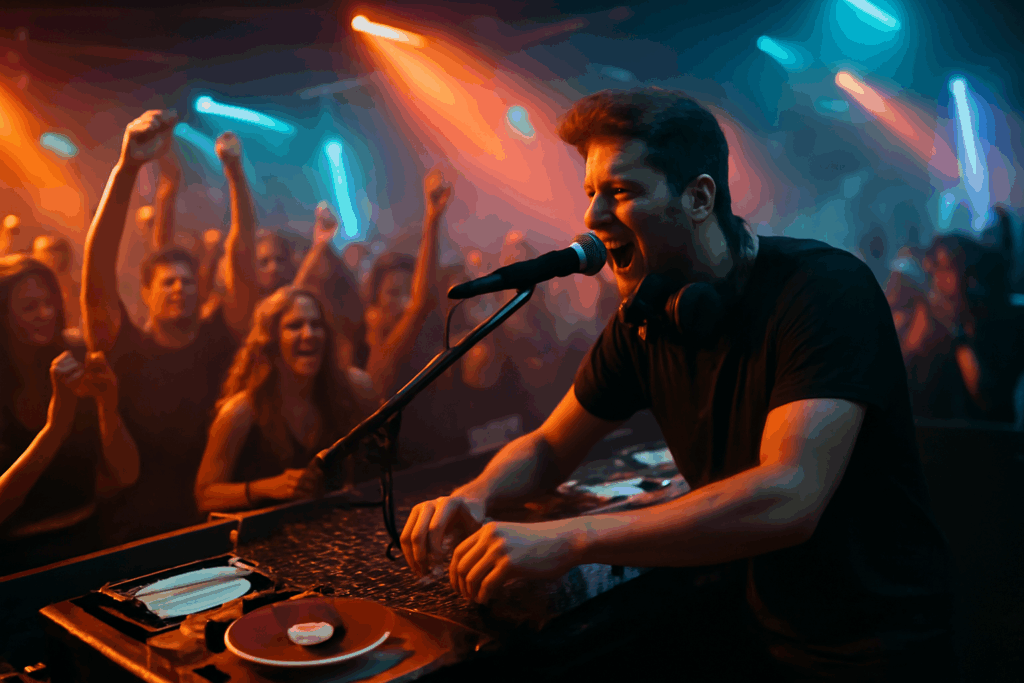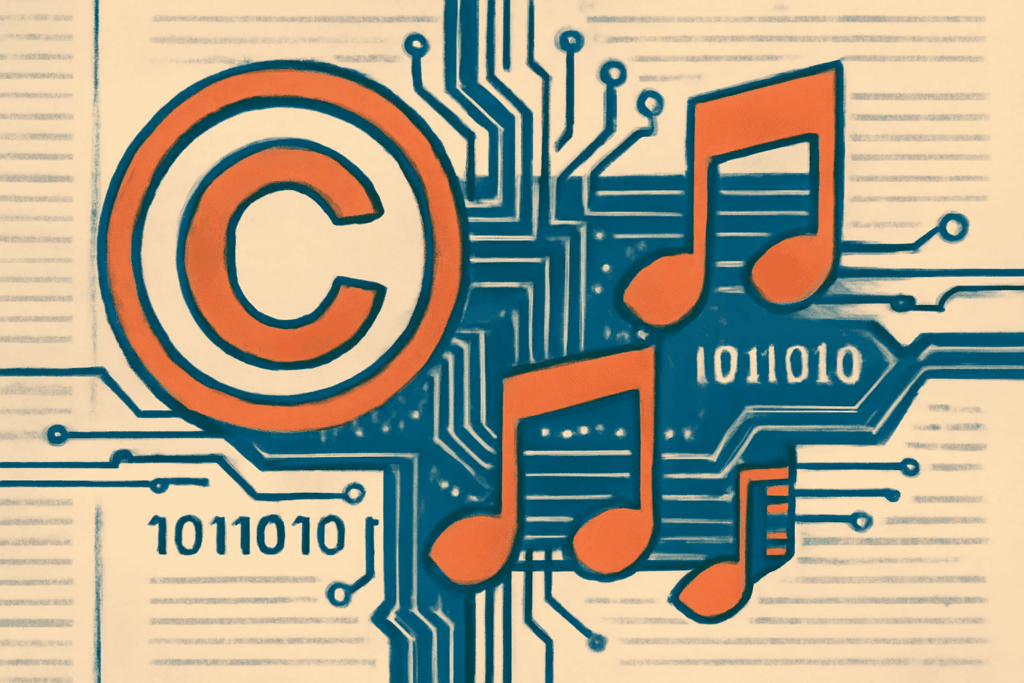Music surrounds us everywhere—on the radio, in cafes, in the background of our favorite YouTube videos. With the rise of DIY music software and AI-powered tools, it’s tempting to remix favorite tunes or create karaoke tracks by stripping out the vocals from a popular MP3. But here’s the burning question: does removing vocals from an original MP3 track violate copyright law? As hobbyists, DJs, and even casual fans explore these techniques, knowing the legal and ethical boundaries is more important than ever.
Reddit and music forums are alive with stories. Some users describe the thrill of crafting their own karaoke versions or instrumentals, while others express fear after getting slapped with copyright strikes on platforms like YouTube. The technology to separate vocals with a click is astonishingly accessible—but that doesn’t mean doing so (or sharing the results) is always legal.
In this post, we’ll unpack the copyright implications, share real experiences from musicians and listeners, and offer clear answers to common questions you’ll face if you remove vocals from MP3s.

Copyright Law: The Essentials
- Copyright Protects Original Works: As soon as a song is created—including lyrics, melody, recording, and arrangements—it’s protected under copyright law. The owners (composer, lyricist, performer, producer) have exclusive rights to reproduce, adapt, distribute, and publicly perform the work.
- Instrumentals Are Copyrighted Too: Removing vocals doesn’t render a song copyright-free. The instrumental backing (even with no lyrics) is a protected part of the original song, and using it without permission is still a copyright issue.
- Derivative Works: Creating a version with the vocals removed counts as making a “derivative work.” Under copyright law, only the original rights holder or someone with explicit permission can make or distribute derivative works such as remixes, instrumentals, and karaoke versions.
Is Vocal Removal for Personal Use Legal?
Personal use is where things feel murky. The consensus from legal experts and the music industry is:
- Removing Vocals for Personal Enjoyment (e.g., singing karaoke at home, enjoying a song’s beats) is generally considered okay, as long as you don’t publicly share, upload, or sell the modified track. It’s private, and copyright holders rarely take issue.
- Commercial Use Is a Red Flag: Uploading, sharing, or selling your vocal-removed track without permission is an infringement in nearly every case. Playing such tracks at public venues or including them in your online content (YouTube, Twitch, TikTok, etc.) also violates copyright unless you have the proper rights or licenses.
Table: Personal vs Public Use of Vocal-Removed Tracks
| Use Case | Is It Legal? | Notes |
|---|---|---|
| Listening at home | Yes (generally) | Keep it private |
| Sharing with friends | Risky | Technically distribution |
| Uploading to YouTube/SoundCloud | No (without license) | Copyright strikes likely |
| Commercial sales/remixes | No (without license) | Explicit infringement |
| Public performance (karaoke bar) | No (need proper license) | PRO and mechanical licenses required |
| Educational/critique use | Maybe (limited fair use) | Context matters, consult legal expert |
How Do People Remove Vocals?
Reddit communities and producer forums are full of advice—and complaints—about vocal removal methods:
- Online Apps: Sites like lalal.ai, vocalremover.com, and EaseUS Vocal Remover automatically separate vocals using AI, fast and free.
- DAWs and Audio Editors: Tools such as Audacity, FL Studio, GarageBand, and iZotope RX offer plugins and techniques to isolate or mute vocals, but results vary.
- Stereo Phasing: An old-school method involves subtracting the center-panned vocals using phase inversion, but it often leaves “digital artifacts” that degrade the remaining audio.
“Ive tried them all. They all don’t do the job cleanly. The audio you are left with has major defects and is garbled… you’ll hear residuals the entire way.”
—Reddit user r/recordingmusic
“The sounds you’re hearing are likely digital artifacts from trying to remove the vocals. Like taking an egg out of a birthday cake… You’re gonna have weird bits of egg left.”
—Reddit user r/WeAreTheMusicMakers
Community Experiences: First-Hand Reddit Tales
Reddit is a goldmine for real-life user perspectives:
- Partial Success, Frustrating Artifacts: Many users find that AI-based tools remove 80-90% of vocals, but weird noises, artifacts, or instrumental loss often remain. “It’s not perfect… it won’t remove panned reverb or other effects,” writes one user. Some try cleaning the tracks with EQ or further editing, but success varies.
- Quality Matters: Downloading MP3s from YouTube (instead of high-bitrate WAVs) often leads to worse results, no matter which vocal remover is used.
- Legal Fears: Some users report receiving copyright strikes from uploading instrumentals to YouTube, despite the vocals being gone. Others ask if removing vocals “makes it safe” to use the track, and the community is unanimous: it does not.
- Legitimate Uses: Some musicians use vocal removal to remix vintage tracks for private mixes, or to isolate instrumentals for educational or sampling purposes—but never for public or commercial release without clearance.
Copyright Risk: Real-World Examples
YouTube and Other Platforms
- YouTube’s Content ID will almost certainly detect stripped-vocal instrumentals as derivative works. Even if no lyrics are present, the copyright in the underlying musical composition and instrumental arrangement remains. If the copyright owner has registered their music with Content ID, your video could be:
Commercial and Public Use
- Selling, streaming, or distributing vocal-removed tracks without a license explicitly violates copyright law. This includes adding them to sample packs, releasing as karaoke in an app, or using in professional DJ sets or ads.
Educational/Fair Use
- Fair use may allow for vocal-removed tracks in educational, critique, or research settings. However, fair use is a limited exception and not guaranteed—especially if there’s a risk of “market harm” to the copyright holder or if the new use is commercial.

Data Table: Most Popular Vocal Removal Tools (Community Tested)
| Tool/Platform | Free? | Format Support | User Experience (Reddit) | Common Complaints |
|---|---|---|---|---|
| lalal.ai | Limited | MP3, WAV, etc. | “Cleanest so far” | Credits/cost for full use |
| Ultimate Vocal Remover | Yes | MP3, WAV | “Powerful, slow” | Resource intensive, artifacts |
| EaseUS Vocal Remover | Yes | MP3, WAV, more | “Quick, reliable” | File size restrictions |
| Audacity Plugin | Yes | Many audio formats | “Alright for basic tracks” | Quality issues, not for all songs |
| vocalremover.com | Yes | MP3, WAV | “Good, residual noises” | Artifacts, imperfect isolation |
| iZotope RX | Paid | Pro audio formats | “Best software, expensive” | Cost, still not perfect isolation |
Final Thoughts
Removing vocals from an MP3 is a creative and sometimes practical way to experience music differently—great for karaoke, mixing, or pure appreciation of instrumentation. But here’s the simple takeaway: the underlying song remains copyrighted, even when the voice is gone.
You can experiment privately, enjoy learning, and explore remixing at home. Once you cross into uploading, sharing, selling, or performing your version, you’ll need to think about licenses and permissions.
Real-world stories from Reddit show that plenty try their hand at vocal removal—but also come up against the real limits of both the tech (artifacts, imperfect results) and the law (copyright strikes, DMCA claims, blocked videos). Know the risks, respect the rights of creators, and, where possible, seek out licensed karaoke or instrumental tracks—or collaborate with original artists!
10 Frequently Asked Questions (FAQs)
For private use, yes. For uploading, sharing, or commercial use: no, unless you have permission or the song is in the public domain.
Not legally without a license. The underlying music is still copyrighted, and you’ll likely get a copyright claim or takedown.
Rarely. Fair use is narrowly interpreted and usually applies to education, commentary, or critique. Most personal or commercial uses don’t qualify.
Your content could be flagged, muted, or removed by automated copyright systems.
Yes. Public performance licenses are required for any copyrighted music played in a public space, karaoke included.
No. Downloading copyrighted music without authorization is illegal, regardless of whether you remove vocals afterward.
The tools themselves are legal; what you do with the output determines legality. Private listening is fine, public sharing is not.
If the track remains recognizable as the original, it’s still considered a derivative work and requires permission.
No, not without the songwriter’s or rights holder’s permission.

Sandra is a music lover who writes for the Acapella Extractors blog. She enjoys discovering fresh sounds, diving into acapella edits, and sharing tips and stories that inspire fellow music enthusiasts.